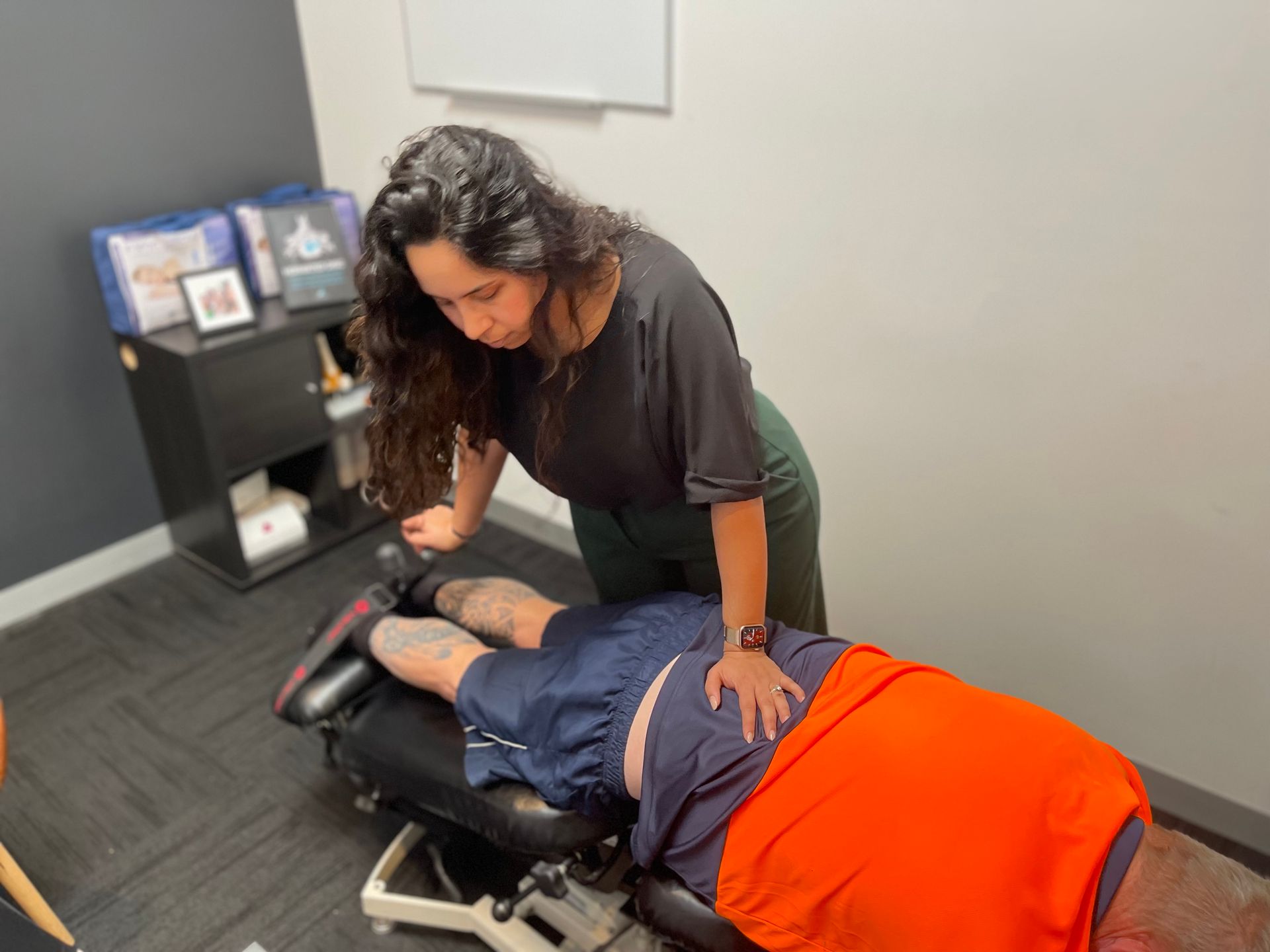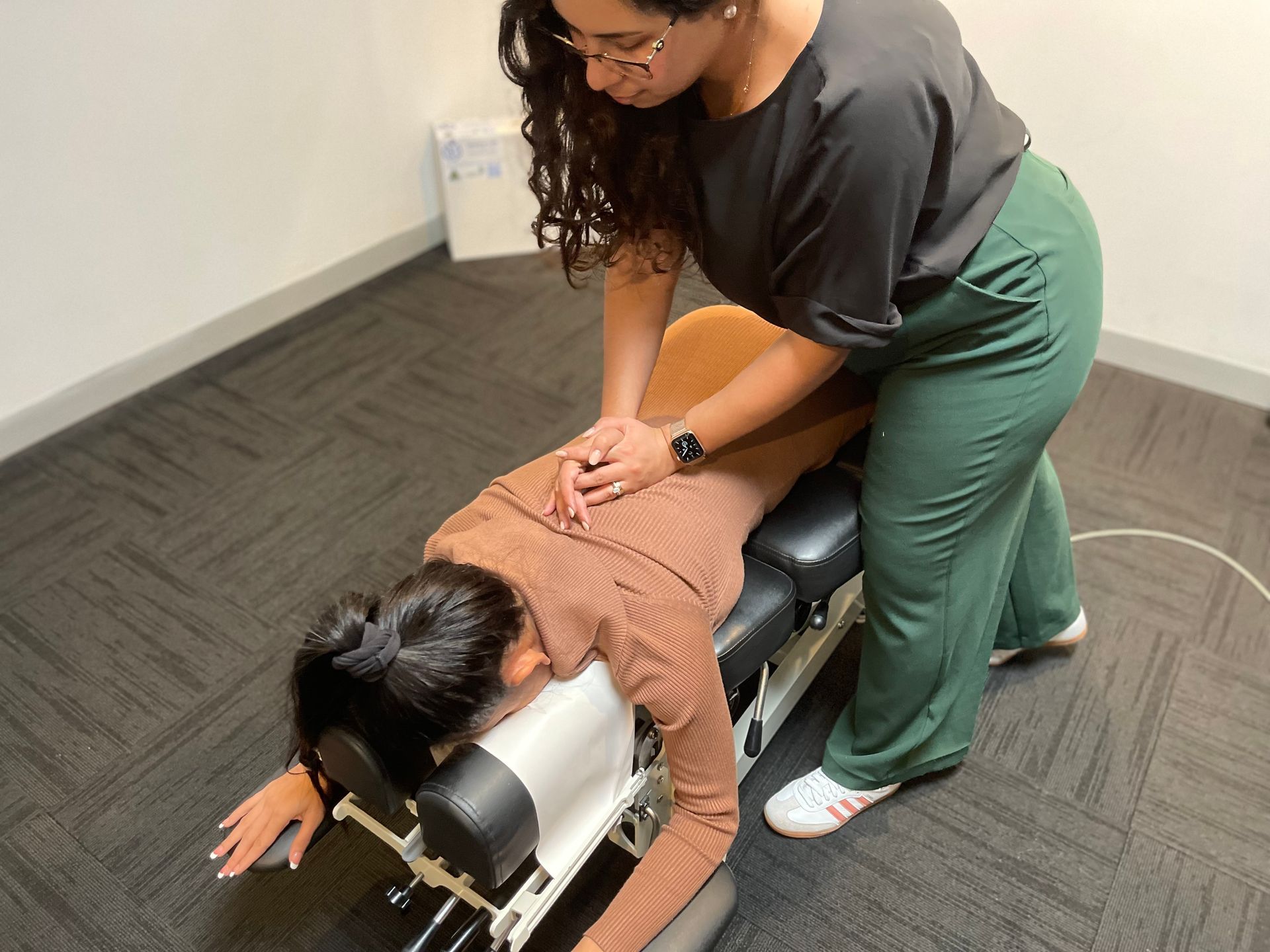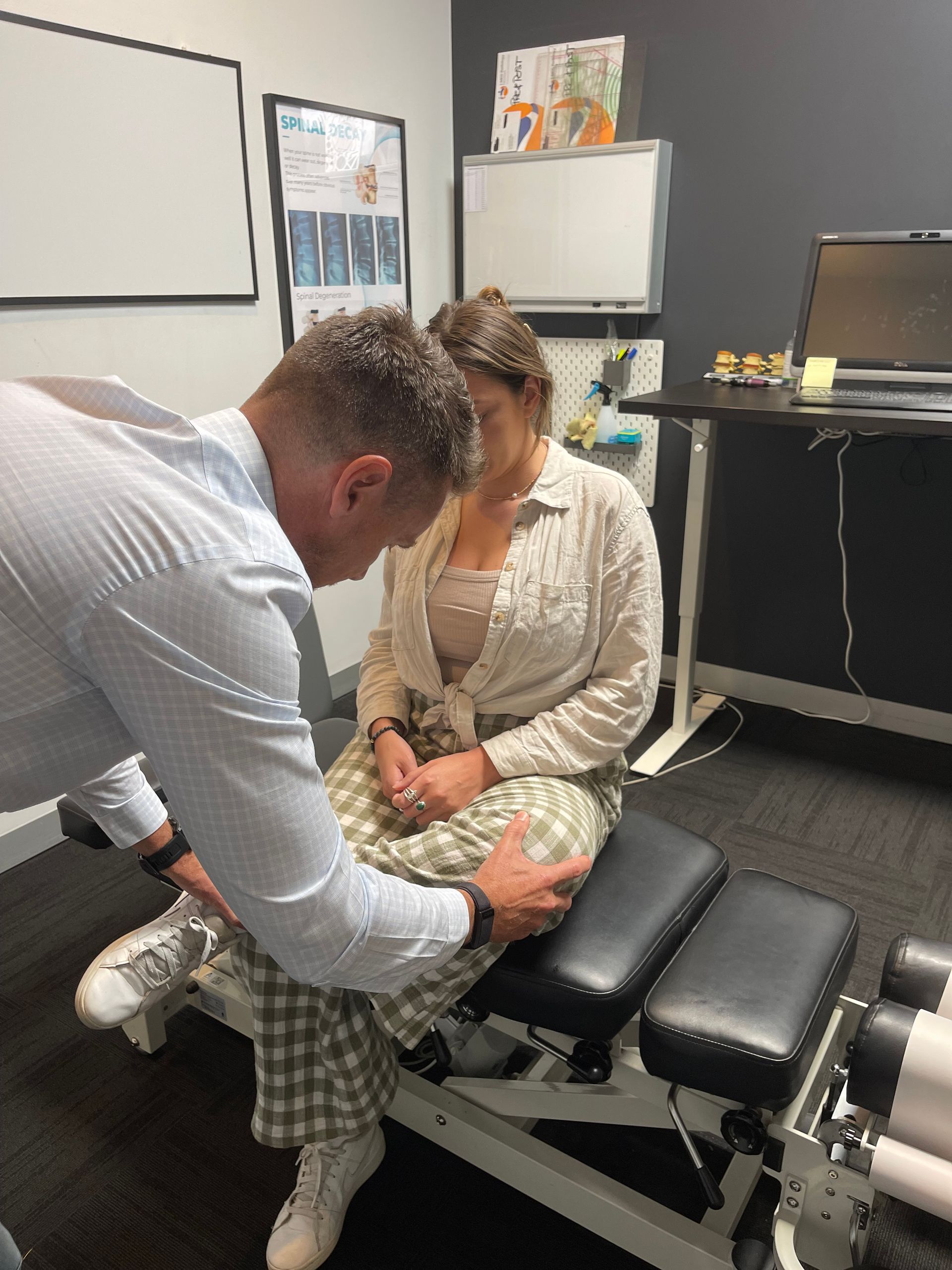How Much Does Medicare Pay For Physiotherapy
As someone who is passionate about healthcare innovation and ensuring access to quality medical treatments, I understand the importance of understanding how much does Medicare pay for physiotherapy.
In this article, we will explore the ins and outs of Medicare coverage for physiotherapy services and delve into the reimbursement options available. Medicare plays a vital role in providing health insurance coverage for millions of Americans, but when it comes to physiotherapy, many individuals may be unsure of what is covered and how much they can expect Medicare to pay.
By delving into this topic, we can gain a better understanding of the financial aspects involved in receiving physiotherapy through Medicare and ensure that everyone has access to these essential services.
So let's dive in and uncover how much Medicare actually pays for physiotherapy!
How Medicare Pays For Physiotherapy
Understanding Medicare's physiotherapy coverage limitations is crucial.
There are some Medicare physiotherapy coverage details. Medicare covers only medically necessary physiotherapy. Medicare will only cover physiotherapy if you have a condition or injury that requires it.
Second, Medicare's Chronic Condition Management Plan covers physiotherapy. This plan covers chronic disorders that require ongoing treatment. If your condition fits this category, you may qualify for five physiotherapy sessions per year.
Medicare covers physiotherapy, but patients may have out-of-pocket costs. For instance, Medicare may reimburse less than the physiotherapist charges. You'll pay nothing if your physiotherapist bulk bills Medicare.
Knowing how Medicare covers physiotherapy is crucial when seeking treatment. Medicare's Chronic Condition Management Plan covers physiotherapy only if it is medically necessary. Your situation may require out-of-pocket costs.
Medicare Coverage For Physiotherapy

Physiotherapy coverage can support and comfort those in need. Medicare covers physiotherapy for seniors and disabled people under the age of 65.
Medicare may cover some physical therapy costs for medical conditions or injuries. Medicare covers physiotherapy, depending on the situation. Overall, Medicare Part B covers outpatient services, including physiotherapy. After your annual deductible, Part B pays 80% of the covered services.
Medicare does not cover all physiotherapy. A doctor must provide medically necessary treatment. Check with your doctor or the Medicare website to see if Medicare covers your physiotherapy. They can describe covered therapies and any restrictions. Knowing your coverage can help you plan and make healthcare decisions. Knowing what Medicare covers for physiotherapy under Part B outpatient services is crucial.
Knowing which services are covered and consulting with your doctor can help you get the right care and maximize your benefits. Let's jump right into physiotherapy rebates!
Rebates For Physiotherapy
Rebates are a great way to reduce the cost of physiotherapy. Medicare physiotherapy rebates can significantly reduce out-of-pocket costs for eligible patients. These rebates make quality healthcare affordable for everyone. These rebates are crucial, so consider these five points:
- Medicare pays a portion of the cost: When it comes to physiotherapy, Medicare will cover a portion of the fees associated with your treatment. This means that you won't have to bear the entire financial burden on your own.
- Eligible conditions: Medicare rebates for physiotherapy are available for a wide range of conditions, including musculoskeletal injuries, chronic pain management, and post-operative rehabilitation. Whether you're recovering from surgery or dealing with a long-term condition, these rebates can provide much-needed financial relief.
- Bulk-billing options: Some physiotherapists offer bulk-billing options where they directly bill Medicare for their services. This means that you won't have to pay anything upfront and can avoid any out-of-pocket expenses altogether.
- Gap payments may still apply: While Medicare covers a portion of the costs, there may still be some gap payments involved. It's important to check with your physiotherapist about any potential out-of-pocket expenses before starting treatment.
- Annual limits and thresholds: Keep in mind that there may be annual limits or thresholds set by Medicare for physiotherapy rebates. It's essential to stay informed about these limits so that you can plan your treatments accordingly.
Medicare rebates make affordable physiotherapy more accessible for many. Rebates can help with treatment costs, but they may not cover everything.
Medicare's Coverage Of Physiotherapy

Discover Medicare's amazing physiotherapy coverage! Medicare covers many medical services, including physiotherapy. You'll be glad to know that Medicare Part B covers physiotherapy.
Medicare will cover part of your physiotherapy costs if you meet certain criteria. Medicare covers physiotherapy, which is invaluable for pain management and rehabilitation. Medicare covers professional-prescribed physiotherapy under Part B. Exercises, manual therapy, electrotherapy, and more are examples. The coverage includes outpatient and inpatient care, ensuring access.
Medicare covers physiotherapy, but with restrictions. Medicare requires a referral from a qualified doctor to cover treatment. Medicare coverage may also have session limits or reimbursement conditions. Talk to your doctor and review your plan to find out what Medicare covers.
Medicare Part B covers physiotherapy services well. A qualified healthcare provider can refer to medically necessary physiotherapy for reimbursement. Understanding the scope of this coverage can help ensure quality care without a full financial burden.
Physiotherapy Treatment And Medicare
Discover the incredible benefits of Medicare-covered physiotherapy and how it can improve your health. Medicare covers many physiotherapy services rendered by qualified professionals. Medicare can cover physiotherapy for injury recovery, chronic disease management, and physical function improvement.
Medicare covers professionally recommended physiotherapy treatments. This includes manual therapy, therapeutic exercises, electrical stimulation, ultrasound therapy, and more. It covers outpatient and inpatient care, so you can get the care you need anywhere.
Work with a Medicare-accepting physiotherapist to get Medicare coverage for physiotherapy. A Medicare-approved physiotherapist will create a customized treatment plan. This plan will treat your condition and prevent future injuries and complications.
With Medicare covering physiotherapy, you can focus on your health without worrying about money. In the next section, we'll discuss how Medicare makes scheduling physiotherapist appointments easy.
Medicare And Physiotherapy Appointments

Medicare makes scheduling physiotherapy appointments with licensed professionals easy. Medicare covers physiotherapy because it helps treat various conditions.
Medicare can help pay for physiotherapy for chronic conditions or complex care needs. This is a great benefit if you use physiotherapy for health and wellness.
Medicare covers physiotherapy and other services, which is a benefit. Medicare can help pay for pain management, surgery rehabilitation, and injury recovery. Medicare covers physiotherapy appointments, so people can get the care they need without worrying about costs.
Medicare gives you peace of mind that you can get quality care when needed. Physiotherapy is essential for chronic disease management and wellness. With Medicare's physiotherapy coverage, patients can focus on recovery without financial worries.
Knowing how much Medicare pays for physiotherapy is crucial for chronic conditions and complex care. Health insurance covers physiotherapy appointments, giving you peace of mind. With this knowledge, let's quickly explore Medicare's role in physiotherapy.
Understanding Medicare And Physiotherapy
Wondering how Medicare affects physiotherapy and how much does Medicare pay for physiotherapy? Let's examine Medicare's coverage for these vital treatments.
Medicare offers different physiotherapy payment options, depending on the situation. Medicare Part B covers qualified healthcare professionals' medically necessary outpatient services, like physical therapy. Medicare may cover some of the cost of physiotherapy for medical conditions or injuries.
Medicare covers physiotherapy with restrictions. Your doctor must prescribe the treatment, which must be medically necessary. Make sure your physiotherapy team is Medicare-enrolled and follows its billing and reimbursement guidelines. Always check with your physiotherapy clinic or provider to make sure they accept Medicare and understand its requirements.
Many patients use physiotherapy to manage pain and regain mobility after surgery or injury. Medicare recognizes the importance of physiotherapy in improving health by covering these services. Medicare may cover physiotherapy for joint replacement surgery or chronic pain conditions like arthritis, giving you peace of mind.
Discovering how Medicare covers physiotherapy is essential when exploring treatment options. Dedicated teams at physiotherapy clinics work with patients to create customized treatment plans. If you're eligible for Medicare and need physiotherapy, talk to your doctor and clinic before starting treatment. By doing so, you can maximize Medicare benefits and receive quality care without missing out on assistance programs.
Physiotherapy And Medicare Benefits

Discover how Medicare can improve your healthcare with its amazing physiotherapy benefits. Patients may wonder if Medicare covers physiotherapy. Medicare covers physiotherapy if it is medically necessary. This helps chronic patients and those recovering from surgeries or injuries.
Medicare covers physiotherapy in some cases. Medicare may cover ongoing physiotherapy for chronic conditions like arthritis or multiple sclerosis to improve quality of life. Medicare can also help pay for physiotherapy after surgery or an injury.
Physiotherapy is effective for managing and treating many health conditions. It can reduce pain, increase mobility and flexibility, strengthen function, and prevent future injuries. Medicare covers these services, so people can get care without breaking the bank. This ensures that everyone, regardless of income, can receive high-quality healthcare.
Patients seeking physiotherapy must know how much Medicare covers. Medicare helps ensure access to essential physiotherapy services by covering chronic conditions and post-surgery rehabilitation. However, coverage details may vary by situation and insurance plan.
Medical Practitioners And Medicare Physiotherapy Coverage
Through Medicare, doctors help ensure access to essential physiotherapy services. As patient advocates, they know the importance of comprehensive healthcare, including physiotherapy. Medical professionals can help patients afford treatment by joining Medicare.
Medical practitioners help Medicare cover physiotherapy by meeting Medicare requirements. Medical practitioners must document and code each session to prove medical necessity. They help patients get Medicare benefits and avoid denials and delays.
Medical practitioners' referrals and recommendations for Medicare's physiotherapy coverage are also crucial. They can determine if physiotherapy is right for a patient. This helps patients get proper care and ensures Medicare pays for medically necessary services.
Medical professionals must also stay abreast of Medicare's physiotherapy coverage changes. They must stay informed as guidelines change in order to advocate for their patients. They can help their patients navigate reimbursement policies and requirements by staying informed.
As we examine how Medicare affects physiotherapy, we see that doctors are crucial to accessing these vital services. Their expertise helps them navigate Medicare's complex policies and advocate for patients. They help people seamlessly access Medicare's essential physiotherapy coverage.
Medicare's Role In Physiotherapy

Medicare's physiotherapy coverage can help people live pain-free and mobile lives. Physiotherapy helps improve health by addressing physical limitations caused by injuries, illnesses, or chronic conditions.
You may wonder if Medicare covers all your physiotherapy needs as a beneficiary. Medicare coverage for physiotherapy services depends on several factors. Medicare covers physiotherapy services when they are medically necessary, but there are restrictions.
Medicare pays up to 80% of qualified physiotherapists' outpatient physiotherapy services. Physiotherapists help patients improve their health and quality of life. They treat musculoskeletal issues with exercises, manual therapy, and specialized equipment.
Physiotherapists can create customized treatment plans for Medicare patients. Seeking physiotherapy health benefits requires understanding Medicare's coverage. Contact your doctor or Medicare to find out what services your plan covers. Understanding coverage and cost-sharing helps you choose physiotherapy treatments.
Physiotherapy Coverage Under Medicare
Explore Medicare's comprehensive physiotherapy coverage and unlock pain-free mobility. Medicare, a trusted healthcare programme, covers physiotherapy and other services. Medicare covers physical therapy for chronic conditions and injuries. Medicare covers physiotherapy, ensuring peace of mind.
The Medicare Chronic Disease Management program covers physiotherapy. Physiotherapy is available to chronic disease patients through this program. Medicare covers five allied health services per year, including physiotherapy, under CDM. Improve mobility, reduce pain, and boost well-being with these sessions.
Medicare covers physiotherapy appointments under CDM and other treatment aspects. To determine the best treatment, healthcare providers may need to use X-rays and MRIs. Medicare may also cover crutches and splints.
Medicare CDM provides extensive physiotherapy coverage. Medicare pays for up to five allied health services per year to help with chronic conditions and injuries. Medicare provides comprehensive care for pain-free mobility, from diagnostic tests to specialized equipment.
Physiotherapy Reimbursement From Medicare

Learn how Medicare can help you pay for physiotherapy so you can focus on healing and regaining mobility.
Yes, Medicare covers physiotherapy! Medicare covers physical therapy for eligible patients. Medicare can help pay for physical therapy for chronic conditions or injuries.
This coverage requires a doctor's or specialist's referral. They may recommend physiotherapy for chronic disease management or post-surgery rehabilitation. You can see a Medicare-accepting physiotherapist with a referral. Your provider will keep detailed records of treatment sessions. These records are necessary for Medicare physiotherapy reimbursement.
It is important to understand Medicare reimbursement. After each session, your physiotherapist will issue an itemized invoice for services and costs. These services must be paid for upfront and claimed by Medicare. Keep copies of invoices and receipts for your claim. With this information, you can confidently claim Medicare physiotherapy reimbursement.
Medicare And Physical Therapy Services
Understand how Medicare and physical therapy services work together to get the help you need for recovery. Medicare helps eligible people get physiotherapy services.
Physiotherapy providers who accept Medicare payments are available to Medicare cardholders. Medicare covers physiotherapy as part of its medical coverage. This includes inpatient and outpatient care, ensuring that patients can receive physical therapy wherever they are.
Note that Medicare may not cover all physiotherapy services. Medicare guidelines and physiotherapist recommendations determine covered treatments and conditions.
Choose a Medicare-accepting physiotherapist when seeking services. The Department of Health or other authorities usually register these providers. Medicare covers treatment if you choose an approved provider.
How much Medicare pays for physiotherapy depends on your circumstances and the treatment needed. Talk to your physiotherapist and healthcare providers about these details.
Physiotherapy Coverage Options

Are you curious about physiotherapy coverage options? Some Medicare and physiotherapy considerations
Understanding what physiotherapy Medicare covers and what may require additional coverage is crucial. Medicare Part B covers outpatient physiotherapy services from licensed physical therapists or other qualified healthcare professionals.
Medicare Part B covers physiotherapy evaluations, exercises, manual therapy, and therapeutic activities. However, there may be session limits or medical necessity requirements. Make sure you understand your plan by talking to your physiotherapist and Medicare.
Supplemental insurance plans beyond Medicare Part B may cover physiotherapy. Medigap or Medicare Advantage plans can provide benefits beyond Medicare. This could include extended physiotherapy sessions or therapies not covered by Part B.
Physiotherapy coverage options are important to consider with all these options. Understanding how much Medicare pays for physiotherapy and exploring supplemental insurance may help you get comprehensive care.
Medicare And Access To Physiotherapy
Access to Medicare physiotherapy services can determine your comprehensive care. Medicare covers physiotherapy, but you must know the restrictions. Three important considerations:
- Medicare pays for a limited number of physiotherapy sessions: While Medicare does provide coverage for physiotherapy, it typically only covers a specific number of sessions per year. This means that if you require ongoing or long-term treatment, you may need to explore alternative payment options such as private health insurance or out-of-pocket expenses.
- Chronic pain and certain health conditions may qualify for extended coverage: In some cases, Medicare may offer additional coverage for individuals with chronic pain or specific health conditions that require regular physiotherapy sessions. These conditions could include arthritis, musculoskeletal disorders, or post-surgery rehabilitation. It's important to consult with your healthcare provider and check with Medicare to determine if you qualify for extended coverage.
- Supplementary insurance can help bridge the gap: To ensure comprehensive access to physiotherapy services, many individuals opt for supplementary insurance plans that cover the costs not covered by Medicare alone. These plans can help bridge the financial gap and provide greater flexibility in accessing the care needed. It's worth exploring different insurance options and considering what best suits your specific needs and budget.
When seeking comprehensive care, knowing how much Medicare pays for physiotherapy is crucial. Chronic pain or certain health conditions may qualify for extended coverage, but sessions are limited. Supplemental insurance can help ensure access to necessary treatments without incurring high costs. By knowing your options and working with doctors, you can navigate the system and get quality care.
Final Thoughts
In conclusion, Medicare provides coverage for physiotherapy services, offering financial assistance to individuals in need of this type of treatment. The reimbursement rates for physiotherapy services vary depending on the specific procedure and the location where it is performed.
Medicare also offers options for coverage, with some plans providing more comprehensive benefits than others. Access to physiotherapy under Medicare is crucial for many individuals who rely on these services to maintain their physical well-being and improve their quality of life.
Overall, Medicare's support for physiotherapy plays a vital role in ensuring that patients have access to the necessary care they need. By covering a portion of the costs associated with these treatments, Medicare helps alleviate the financial burden on individuals seeking physiotherapy services. This allows patients to focus on their recovery without having to worry about how they will afford their necessary treatments.
In summary, Medicare's commitment to providing coverage and reimbursement for physiotherapy demonstrates its dedication to supporting the health and well-being of its beneficiaries. Now you know how much does Medicare pay for physiotherapy in this informative article.
Frequently Asked Questions
Can Medicare Cover The Cost Of Physiotherapy For Chronic Conditions?
Medicare covers chronic-condition physiotherapy. This is good news for innovative health management solutions. Medicare recognizes the importance of physiotherapy in treating chronic conditions and promoting well-being by covering it. Innovative physiotherapy techniques can help chronically ill people improve mobility, pain, and quality of life.
Medicare helps people afford these cutting-edge treatments. If you're looking for a novel way to manage your chronic condition, Medicare covers physiotherapy.
Are There Any Limitations Or Restrictions On The Number Of Physiotherapy Sessions Medicare Will Cover?
Medicare limits the number of physiotherapy sessions. Medicare covers physiotherapy, but annually limits the number of sessions. The number of sessions covered depends on your Medicare plan and the severity of your condition.
Remember that these restrictions ensure resource efficiency and prevent overuse. Private insurance or out-of-pocket payments may be available if you need more physiotherapy than Medicare covers.
Does Medicare Cover The Cost Of Specialized Equipment Or Assistive Devices Needed For Physiotherapy?
Medicare covers physiotherapy equipment and assistive devices. This is good news for those who need extra help healing.
Medicare values comprehensive care for mobility devices, orthotic braces, and other innovative equipment. Medicare covers these costs, so patients can use cutting-edge technology to improve their rehabilitation.
Medicare covers specialized equipment and assistive devices for physiotherapy. Knowing you have the latest healthcare innovations lets you focus on your recovery.
How Long Does It Typically Take To Receive Reimbursement For Physiotherapy Services From Medicare?
Medicare reimbursement for physiotherapy takes time. Timeframes vary depending on claim complexity and additional documentation.
However, Medicare is constantly improving and adopting new methods. This means they are always looking for ways to streamline reimbursement and speed up payment. Thus, exciting advances may reduce reimbursement turnaround time in the future. Thus, while it may take time, I'm optimistic about Medicare physiotherapy reimbursement.
Are There Any Alternative Coverage Options For Physiotherapy For Individuals Who Do Not Qualify For Medicare?
Non-Medicare recipients have other coverage options. Private health insurance often covers physiotherapy. Private health insurance plans offer many benefits and can be customized. They may cover physiotherapy, allowing people to get care outside of Medicare.
Some employers offer wellness programs that cover or discount physiotherapy as part of their employee benefits. Exploring these alternatives can ensure that people without Medicare coverage can get the physiotherapy they need.
Latest Articles
Mornington Peninsula
Chiropractic
Just up the road from you...
- Mon - Fri
- -
- Sat - Sun
- Appointment Only
Mornington
03 9787 8518
Rosebud
03 5911 8181
CONDITIONS
LINKS
Our Locations
Designed By Jon Web Design



